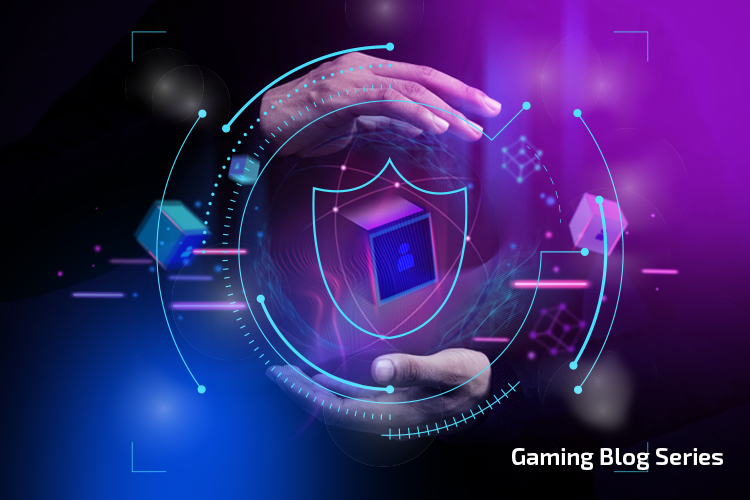Safeguarding the iGaming Realm: Navigating Security Threats for Data and Player Protection

Safeguarding against security threats is a paramount concern. With a vast array of sensitive data and intricate software systems at play, the industry is a prime target for cyberattacks. The challenge lies in fortifying these digital fortresses to ensure the protection of both player’s data as well as proprietary software.
Neglecting security measures can have devastating repercussions leading to the compromise of sensitive customer information, eroding trust and credibility whilst disrupting operations for an indefinite amount of time resulting in an impact in EBITDA, player retention and potentially a tarnished reputation.
The obvious solution to mitigate security threats is the implementation of robust security measures across their operations. This includes adopting advanced encryption protocols, fortifying firewalls, and employing multi-factor authentication bolstered by regular security audits and vulnerability assessments which are crucial to identifying and rectifying potential weaknesses early on.
Prioritizing security not only safeguards sensitive data and software but also instils confidence with all stakeholders. Demonstrating a commitment to security establishes any iGaming business as a reliable and trustworthy entity in a landscape rife with potential threats.
In the dynamic realm of iGaming, through experience gained in the vertical, we know that some key strategies to minimize security threats and ensure secure operations include:
- Encryption: The employment of strong encryption protocols to secure all communication between users and their platforms. This includes encrypting sensitive user data, financial transactions, and personal information.
- Secure Socket Layer (SSL) Certificates: SSL certificates are used to establish secure connections between users’ web browsers and the gambling platform’s servers. SSL ensures that data transmitted between the user and the platform remains encrypted and protected from interception or tampering.
- Secure Data Storage: Player data is stored in secure databases that are protected with strong security measures including employing encryption techniques to safeguard the stored data, implementing access controls to restrict unauthorized access, and regularly updating and patching systems to protect against potential vulnerabilities.
- Two-Factor Authentication (2FA): 2FA is often implemented as an additional layer of security. It requires users to provide a second form of verification, such as a unique code sent to their mobile device, in addition to their login credentials. This helps prevent unauthorized access even if a user’s password is compromised.
- Firewalls: Robust firewalls are set up to monitor and control incoming and outgoing network traffic. They help prevent unauthorized access, protect against hacking attempts, and safeguard the platform from malicious activities, whilst also preventing unauthorized users from gaining access to sensitive player data.
- Intrusion Detection and Prevention Systems (IDPS): These systems monitor network traffic and analyse it for potential security breaches or anomalies. IDPS can detect and prevent various types of attacks, including DDoS (Distributed Denial of Service) attacks, SQL injection, and other forms of malicious activity.
- Regular Security Audits: Regular security audits identify vulnerabilities and ensure their platforms are up to date with the latest security patches. External security firms may be employed to perform comprehensive assessments and penetration testing to identify potential weaknesses.
- Anti-Money Laundering (AML) and Know Your Customer (KYC) Procedures: Gambling platforms have stringent AML and KYC procedures in place to prevent money laundering, fraud, and identity theft. These procedures typically involve verifying the identity and financial transactions of users to ensure compliance with legal and regulatory requirements.
- Staff Training and Awareness: The education of employees about security best practices and potential threats is a critical component of effective security. Regular training sessions and awareness programs help employees recognize and respond to security risks effectively.
- Identity Verification: iGaming companies often have strict identity verification processes in place to ensure that players are who they claim to be. This typically involves requesting and verifying personal identification documents, such as government-issued IDs or utility bills, to prevent identity theft and fraud.
By embracing these strategies, iGaming businesses can fortify their defences against security threats, ensuring the protection of both data and software. This proactive approach not only safeguards the integrity of operations but also bolsters trust among customers and partners.In conclusion, the iGaming industry’s reliance on intricate data and software systems necessitates a vigilant approach to security. Understanding the potential pain points, consequences of inaction, and implementing the right solutions are essential steps toward a secure and resilient iGaming business. By prioritizing security, operators can not only protect sensitive information but also cultivate a reputation as a secure and reliable player in the industry.




